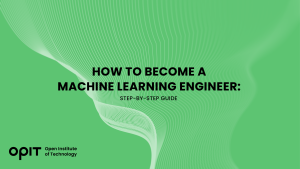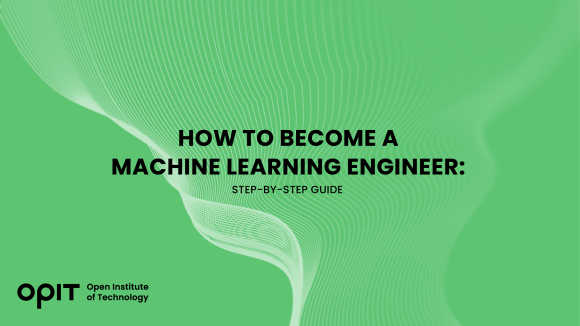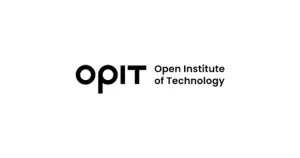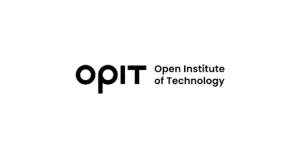

The demand for machine learning engineers is head-spinningly high. If you’re here, you are probably wondering how to become a machine learning engineer, the magic behind machine learning, and the savvy people behind it. In this domain, innovation meets practicality. Let’s unfold what it entails and why the demand has skyrocketed.
What Does a Machine Learning Engineer Do?
A machine learning engineer is the backbone of creating systems that can learn and make decisions with minimal human intervention. As a simple example, you could be teaching a machine to recognize a cat in a video or predict the next big trend in stock markets.
A machine learning engineer must perform a variety of tasks — from designing predictive models and fine-tuning their accuracy to deploying algorithms that can scale. They manipulate massive datasets, extract meaningful insights, and constantly learn to keep up with new advancements in the field.
You might wonder, “What are the machine learning engineer requirements?”
The requirements to become a machine learning engineer aren’t just about having a knack for programming or being great at math. Of course, those skills are necessary, but there’s more to it. You need to be curious, resilient, and eager to solve complex problems. Being able to communicate your findings and work collaboratively with others is just as big of a part of becoming a pro in machine learning. After all, what’s the use of a breakthrough if you can’t share it with others?
Educational Requirements to Become a Machine Learning Engineer
University degrees in computer science, data science, or Artificial Intelligence will give you a solid foundation. They cover everything from the basics of programming to the complexities of algorithms and data structures. Conversely, online or offline certifications might not be quite as comprehensive, but they make up for it by being more focused. Platforms for learning online also give you an in-depth look into machine learning specifics at your own pace.
Comparing the two, degrees offer a broad understanding and are great for foundational knowledge. At the same time, certifications can be seen as a bonus, providing specialized skills and up-to-date industry practices. Both paths have merits, and often, the best thing to do is to blend both. For a more detailed comparison, take a look at the article “Machine Learning Engineer Degree.”
Key Skills for Aspiring Machine Learning Engineers
First, your technical toolkit should include:
- Programming languages like Python or R
- Knowledge of algorithms
- Data modeling
These skills are the bread and butter that let you build and refine machine learning models that can tackle real-world problems.
But something to remember is that being technically adept isn’t enough. How to become a good machine learning engineer also hinges on your soft skills, such as:
- Communication
- Teamwork
- Resilience
- Problem-solving
The ability to communicate complex ideas clearly, work effectively in teams, and stay resilient in the face of debugging nightmares, along with problem-solving skills, are paramount. After all, you’ll be solving new puzzles every day. Also, while all these technical skills make for a terrific mix, you need creativity and curiosity. They fuel your innovations and discoveries in the ever-evolving field.
Building Experience in Machine Learning Engineering
Here are a few avenues to explore when building a machine-learning experience:
- Internships. There’s no substitute for real-world experience, and internships give you exactly that. They bring you face-to-face with the industry’s challenges and learning opportunities under the guidance of experienced mentors.
- Personal projects. If you’ve ever had an idea for a machine learning project, now’s the time to bring it to life. Personal projects are not only a fantastic way to test your skills but also to showcase your creativity and passion to potential employers.
- Open-source projects. Joining open-source projects can be a win-win. You get to contribute to meaningful projects, learn from the community, and make your mark in the field. It’s networking and learning all rolled into one.
Advancing Your Career With Specialized Machine Learning Knowledge
There’s always something new to learn in neural networks and AI. Specializations help you stand out in a field that’s very much in demand, and advanced education programs take you there. Deep learning, natural language processing, computer vision, robotics, reinforcement learning, and AI ethics are just some examples of potential specializations.
OPIT’s Master’s and Bachelor’s Programs are perfect examples of knowledge that’s equally deep and broad:
- MSc in Responsible Artificial Intelligence focuses on the ethical and societal impacts of AI. It prepares you to create technology that’s responsible as it’s advanced.
- BSc in Modern Computer Science provides a comprehensive foundation in computer science with a focus on modern developments, including machine learning.
- MSc in Applied Data Science & AI is for those who want to deepen their expertise in data science and AI, blending theory with practical application.
Enhancing Credibility With Machine Learning Certifications and Networking
Industry-recognized certifications polish your resume and, perhaps more crucially, signal your commitment and expertise to prospective employers, showing that you have the knowledge the industry feels is valuable. And let’s not forget the power of networking. Connecting with peers and mentors can open doors you never knew existed.
Career Prospects for Machine Learning Engineers
The horizon for machine learning engineers is vast and varied. Every sector, from tech giants to startups, is on the lookout for talent that can harness machine learning.
Healthcare, finance, tech, and even agriculture companies are eager to leverage AI to gain an edge. As a machine learning engineer, you could:
- Design algorithms to personalize content on streaming platforms
- Improve patient diagnoses in healthcare
- Predict client spending habits in banking and finances
- Optimize crop yields in agriculture
The variety of roles means there’s room for specialists and generalists alike. From data scientists and AI researchers to ML developers, the career paths are as diverse as the challenges you’ll tackle.
Partnering With OPIT for Your Machine Learning Engineering Journey
The right partner for your education can make all the difference, and OPIT is a beacon for aspiring machine learning engineers. OPIT offers a gateway to the future of tech through the following degrees:
- MSc in Responsible Artificial Intelligence that teaches you about AI ethics implications and social responsibilities and emphasizes real-world application.
- BSc in Modern Computer Science gives you a solid base in computing, opening doors to machine learning.
- MSc in Applied Data Science and AI is a program with hands-on projects that meet cutting-edge theory.
OPIT’s edge is in bridging in-depth learning and practical experience, minus the heavy-handedness of traditional schools and final exams.
Why Should You Become a Machine Learning Engineer?
The path to becoming a machine learning engineer is as exciting as it is rewarding, financially and professionally. As you learn, you’ll be coding in Python, untangling data, and figuring out how to make machines smarter. Yet, none of this would be enough without “softer” leadership, problem-solving, and communication skills.
With OPIT by your side and its master’s degrees in Responsible Artificial Intelligence, Modern Computer Science, and Applied Data Science and AI, you’re ready to take the future by storm.
Related posts


Source:
- Il Sole 24 Ore, published on June 23rd, 2025
At its core is a teaching heritage made up of 131 courses, 3,500 hours of video, 1,800 live sessions
Have questions?
Visit our FAQ page or get in touch with us!
Write us at +39 335 576 0263
Get in touch at hello@opit.com
Talk to one of our Study Advisors
We are international
We can speak in:


